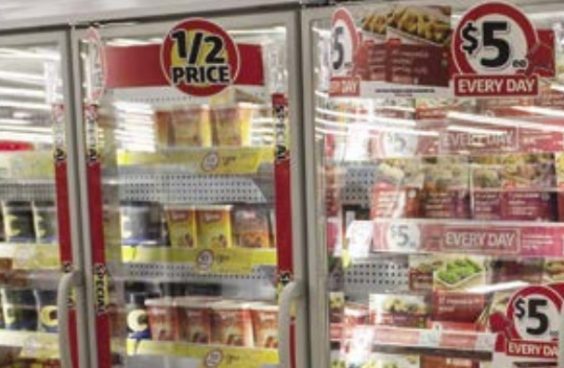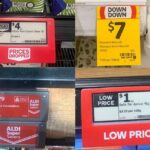
When it comes to couponing to save money on your groceries, nobody does it quite like Americans. Couponing as we know it isn’t anywhere near as prevalent – and in many cases, is downright nonexistent – in most other countries. But when it comes to offering deals and coupon-free savings, there are some countries that do it even better than we do in the bargain-loving United States.
At least for now.
According to Nielsen, about 30% of grocery products in the U.S. last year were sold at a discount with some type of promotion – whether it was a weekly sale, a buy-one-get-one-free deal, or something similar. While that’s way down from a recent high of more than 42% a decade ago, it’s still the third highest rate of groceries sold on promotion among all countries in the world. The only two countries where more groceries are sold at a discount are Australia, where 40% are sold on promotion, and New Zealand, where a mind-boggling 59% of all groceries are sold at something other than full price.
One of those countries believes this is a big problem. And, if you’re going by those numbers, it’s probably not the one you think.
Australia’s two largest grocery chains say promotions, and shoppers’ expectations of deep discounts, are simply getting out of hand. So they’re pledging to bring the practice to an end in favor of ALDI- or Walmart-style everyday low prices.
Speakers who addressed an industry group Down Under last week told the gathering that frequent price promotions are creating deal-obsessed shoppers who are more focused on price than quality and value, and are increasingly unwilling to pay full price for anything. At the same time, the ubiquity of promotions means individual deals are beginning to lack effectiveness, creating a sort of “discount fatigue” among shoppers.
An executive with Woolworths, the country’s second-largest grocery chain, told the group that all of the discounting is eroding shoppers’ trust in their stores’ prices. If something isn’t sold on a deal, many shoppers now assume they’re being overcharged. “While customers are always looking for specials,” Woolworths’ director of buying for packaged groceries Peter McNamara said, “specials are only a great deal for that individual week, and we’re increasingly focused on delivering customers fairer and more consistent prices each and every week.”
Coles, the country’s largest grocer, is working to do the same. Anna Croft, the general manager of grocery at Coles, told the same gathering that her store is facing the same challenges. “We have spent ten years trying to crack this and haven’t done it yet,” she said. She admitted that her store still has an “overreliance” on promotions, including on items “we shouldn’t be promoting”.
Her comments touch on something that Nielsen has pointed out – grocery promotions are getting so out of hand, that grocers are giving away discounts on items that would still sell regardless of whether they were promoted or not. “In Australia, $51 billion is spent on promoted sales,” Nielsen reported last year, “however, 48% of this amount would have happened anyway.” Chocolate is considered a price-sensitive category – shoppers tend not to buy it very much unless it’s on sale, so promotions are seen as necessary in that category. Canned vegetables, bread and coffee are seen as staples that many shoppers will purchase regardless of price. And for some items, like deodorant and toilet paper, more than 70% of price promotions are considered wasteful – meaning roughly three-quarters of all deodorant and toilet paper that’s purchased when it’s on sale, would have been purchased anyway at regular price.
“This has given rise to Australian shoppers who are highly price aware,” Nielsen noted. As a result, “some of these shoppers change their behaviors by picking where to shop, switching between promoted brands in-store and pantry-stocking on promoted products.”
To couponers and deal-seekers, those concepts – choosing where to shop based on who has the best promotions that week, buying whatever brand is on sale, and stocking up when you can get something at a discount – are precisely how you get the most groceries for the least amount of money. So how is this a problem?
Just consider the growing popularity of stores like Walmart and ALDI, which offer consistently low prices. Sure, those prices may not beat the promotional prices at the grocery store, but they appeal to shoppers who are tired of playing the discount game and just want a fair price whenever they choose to shop for whatever they choose to buy. And brands and retailers, of course, would like to sell fewer items at deep discounts, if only – as Coles and Woolworths are learning – they could train shoppers not to expect them.
So Australian shoppers may be seeing fewer half-price deals and stock-up prices in the months to come, if that country’s largest grocers have their way. And then, watch out – if “discount fatigue” ever sets in here in the U.S., your favorite promotions could be falling by the wayside as well.
If that doesn’t appeal to you, you might want to start looking for a more promotional place to shop. In that case – there’s always New Zealand.
Image source: Coles















